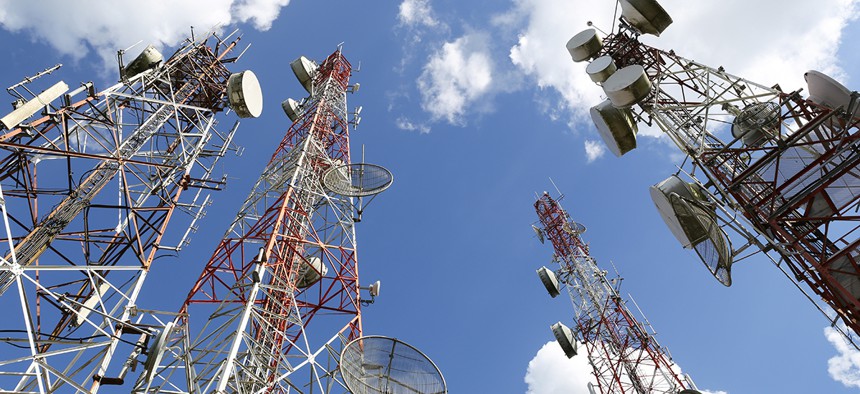Police Use of Phony Cellphone Towers Needs to be Reined in, Lawmakers Warn

Sattaya/Shutterstock.com
The federal government should refuse to OK sale of the fake towers to state and local cops who don’t pledge not to use them without probable cause, a bipartisan report urges.
Congress should pass legislation to ensure that phony cellphone towers police use to locate criminals and fugitives are used consistently across the country, according to a bipartisan congressional report released Monday.
In the absence of those laws, the Justice and Homeland Security departments should refuse to approve the sale of those devices, known as “cell-site simulators” or “stingrays,” to state and local law enforcement unless they agree to abide by current federal rules, according to the staff report from the House Oversight and Government Reform Committee.
The report is the result of a year-long staff investigation into stingrays, which federal law enforcement agencies frequently used to track criminals without warrants and using a standard lower than probable cause prior to policy shifts in September and October 2015.
Those lower standards are still used by many states and localities, according to the report, which determined “the use of cell-site simulators by state and local law enforcement agencies was not governed by any uniform standards or policies.”
The updated DHS and DOJ policies allow some exigent circumstances where warrants are not required to use stingrays, such as when their use could save lives or prevent the destruction of evidence.
Most states that require warrants for stingray use include a similar list of exceptions, though those exceptions vary between states.
Stingrays effectively mimic cellphone towers and trick cellphones into transmitting their location information. Civil libertarians have criticized the devices, which also collect location information from the cellphones of innocent bystanders in proximity to the suspect’s phone.
DHS identified about $1.8 million in grant money it had given state and local governments to purchase stingrays, though that number could be lower because the department does not keep a separate account for the grants, investigators said.
Companies are required to gain FBI permission before selling stingrays to state and local law enforcement and the FBI frequently requires those companies to sign nondisclosure agreements stating they will not divulge the use of the technology even in criminal court cases where prosecutors were relying on evidence obtained by the devices, committee investigators said.
In future, those nondisclosure agreements should be replaced with agreements “that require clarity and candor to the court whenever a cell-site simulator has been used by law enforcement in a criminal investigation,” the report states.
NEXT STORY: House panel seeks new rules for Stingrays






